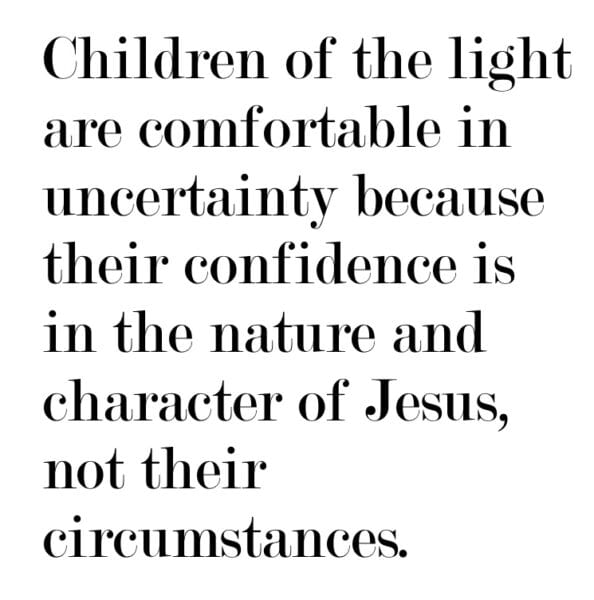(Note: First, I am thrilled to announce that we’ve secured the necessary funds to rescue the water enterprise in Kenya. Thank you for your generosity once again. And now, here’s the last chapter of It’s Time: Letters to the Bride of Christ at the End of the Age. Whether he comes in the next fifteen years or the next one hundred and fifty years, how do we live in light of his return? We have already released the first part of this book in print, and now we will combine it with the last part. You can also access the previous chapters here.)
_________________________________
It has been 2,000 years since Jesus promised to return. How do you keep your hope up that he will? Do you ever wonder whether we’ve missed something here? Since I don’t have a clue when he might come, I don’t see how it’s relevant to the decisions I have to make today.
Janine, office manager and grandmother in Ireland
Hi Janine,
That has been my dilemma most of my life. In my younger days, people talked about him coming before I would graduate from high school. I dreaded the idea of judgment, and I didn’t want my life cut short here. As so many predictions of his return came and went without effect, the hope of his coming fell into the background, irrelevant to how I lived.
If we knew he was coming in two years, wouldn’t we make different decisions than we would if we knew it wasn’t going to happen for another fifty? Perhaps that’s why we don’t know. Anticipating his return is a matter of the heart, hoping in the final resurrection, rather than information for financial or career choices. I’ve known many who thought they had it figured out, only to make horrible choices that ruined their lives.
As these days have darkened with growing polarization, global conflicts, natural disasters, and environmental challenges filling every news cycle, his coming now seems almost a necessity to rescue us from ourselves. Now, I cannot wait for the moment when the same Jesus who walked the hills of Galilee, surrendered his life to the cross, rose victorious over death, and revealed himself to countless people throughout history, will bodily reappear on planet Earth. He, whom we’ve only known by presence, will become materially present, and we will know him as fully as he has always known us.
 At his coming, Jesus will expose the dark powers that rule the earth, and the old order of those who compete for influence and power will dissolve into nothing. Kings, presidents, prime ministers, dictators, and CEOs will all lose their power, national identities will be obliterated, and suffering will cease at last. Though I have lost sight of it at times, I’ve never doubted that he will yet come.
At his coming, Jesus will expose the dark powers that rule the earth, and the old order of those who compete for influence and power will dissolve into nothing. Kings, presidents, prime ministers, dictators, and CEOs will all lose their power, national identities will be obliterated, and suffering will cease at last. Though I have lost sight of it at times, I’ve never doubted that he will yet come.
That’s when God’s work of redeeming Creation will reach its climax. In the blink of an eye, all we have known will be reconstituted into a new heaven and new earth that will abound with his love and life. What we’ve known in glimpses, we will see in fullness when sin, fear, and pain are abolished.
Creation has longed for it since humanity crashed into the wall of its waywardness. The day of his coming is why the Psalmist pictures the trees singing for joy, the seas resounding, and all Creation rejoicing: God is coming to judge the world (Psalm 98). I know many of us were taught to fear his judgment, but Creation doesn’t, and I don’t anymore. On that day, he will set right all that has been corrupted on this planet.
The end of this age will also be the beginning of a new and better one. Jesus will take his rightful place as Lord of all, and Creation will thrive in a justice born of love and tenderness. The oppressed will go free, sickness gone, the lies we’ve believed will dissolve in the light, and we will forever be with him in his eternal kingdom. To those who find their fulfillment in the world, that day may be tragic. But for those who have found their home in Jesus, it will fulfill every unmet desire and unsatisfied dream.
Why Is He Waiting?
One of the great mysteries of human history is how slowly God appears to move by our perception. God’s purpose seems to unfold at a painstaking pace. People have navigated the darkness of human fallenness for centuries, and Israel bore 1500 years under the weight of a law they could not keep. The early followers thought his return was imminent over 2000 years ago. Even in the Incarnation, God was not in a hurry. Jesus came to rescue the world as an embryo in the womb of a maiden, then spent thirty years as an infant and young man before he began to share the glory of his kingdom and prepare for his atoning death.
All we’re told is that he came “in the fullness of time” (Galatians 4:1-5). Paul didn’t explain all that meant, but he compared it to children under a tutor who had become heirs and no longer needed to be schooled. Jesus didn’t come the first time at some arbitrary date, but only when events on the earth allowed the Incarnation to play out to maximum effect. Perhaps human culture had to grow in its capacity to appreciate grace for him to open the door of salvation. Before that, God used law and punishment to control humanity’s destructive instincts. And yet today, many who claim to be Christians still struggle to embrace his love as the transforming power of the universe.
I suspect his second coming will also come in the “fullness of time.” I doubt he is waiting for a prescribed date, though, by his foreknowledge, he would know it. I’m sure there are many factors that will determine when this planet is ready for the final act of redemption. Peter told us that any delay is a sign of his great patience to redeem as many as possible (II Peter 3:8-9). Perhaps the world must grow darker yet, or he’s waiting until our only hope is in him, not what we can do to fix the planet.
Jesus must reign, Paul writes (I Cor 15:25-27), until all his enemies have been subdued under his feet. Then he will abolish all rule, authority, and power and present the kingdom to his Father. Does that just happen at the end of the age, or is it a work he’s been doing behind the scenes? Honestly, I don’t know, but it does seem the forces of evil still prevail in human history.
Or it may be that the Bride herself has something to do with it. What if he stands at the door of the world even now, waiting for an invitation from the redeemed to step across the threshold? The bullies have taken over the house, and the world is in chaos. They know that those final days will be filled with pain, but they invite him anyway. “Lord Jesus, come quickly.”
I wouldn’t be definitive about any of this. We make a grave error when we assume we know the motives of God. Paul reminded us not to judge each other’s motives because we often don’t even know our own (I Cor 4:1-5). How much more difficult would it be to guess what motivates God beyond the fact that he loves us deeply and is taking the surest route to redemption?
Revival First?
Many of my friends are anticipating a worldwide revival before his appearing, like the Great Awakenings of old. They will chase all over the world if they hear any sign of one.
Am I looking for a revival? Not in the same way. While I would love to see a fresh outpouring of his Spirit to draw people to himself, I have no preconception of what that might look like. Most of what we call revival is people groveling in the shame of their failures through public repentance, rather than coming alive in his love. It’s easy to forget that all movements of God go to die in the structures we create to contain them.
Where I see people focused on revival through prayer networks and prophetic words, the life of Jesus is mostly absent. Their focus is largely on their own success and their efforts. They manipulate obscure passages of Scripture to bolster their hope and exploit crowds of people with false comfort. They find comfort in outlandish “manifestations” that are easily manipulated by crowd dynamics. I’m reminded how wrong the Jewish messianic expectations were when Jesus first came. Looking back, we can see how clearly Scripture mapped out these things, yet we often forget that we do so through the benefit of hindsight.
Jesus told us not to seek revival somewhere else. “The kingdom of God will not come with observable signs. Nor will people say, ‘Look, here it is,’ or ‘There it is.’ For you see, the kingdom of God is in your midst” (Luke 17:20-21).
I already see a fresh wave of God’s Spirit inviting people to a deeper touch with Jesus. Those he is stirring are not looking for a man to follow, a certain type of euphoric gathering, or the political power to dominate the culture. Instead, they are coming alive to God’s presence within them. They are learning to rest from their own labors, either to draw closer to God or to become more righteous. They are growing confident in his love and talk of Jesus as a real presence who is leading and guiding them.
This work of God is decentralized and lies beneath the radar of those looking for outward signs. These people are rising simultaneously all over the world because it is a work of the Spirit, not a fixation on a human leader, author, or influencer. As the Spirit of God draws them back to first love—how deeply they are loved by God—they become more at rest in him, freer to love others and more attuned to his voice as their life unfolds.
There’s a huge difference between being led by the Spirit and living by principles, no matter how good they may be. Seek revival, and you’re guaranteed to miss him because he will come in ways you won’t expect. Follow him, and you’ll find yourself an increasing part of God’s redemption in the world.
Living in Redemption
How do we live in anticipation of his return? I’ve seen too many people, focused on the immediacy of his second coming, forgo college, quit their jobs, and abandon their responsibilities because they think they won’t matter. That may be why God doesn’t reveal the time of his Son’s appearing. If he did, we would make poor choices based on our own presumptions rather than following his lead.
Anticipating his coming doesn’t fix on a date. The early Christians were invited to live that way thousands of years ago. Expectancy about his coming helps us hold on to him in the unfolding circumstances of our lives, to endure the unendurable, and to find his calming voice in times of trouble. It is less about our material concerns than it is yielding to his kingdom growing in us. Embracing the assurance of his ultimate victory will sharpen our priorities in the present.
Many seek to promote fear with false conspiracies and geopolitical predictions. They know how easily they can manipulate our fears to seek vengeance for the “other” and to seek retribution for those we perceive as our enemy. However, the end of the age is not about vengeance from God’s perspective; it’s about redemption. Give in to vengeance against evil, and it will blind you to God’s love, replacing it with hatred for those who aren’t like you and make you a party to the us vs. them theatrics that are tearing our world apart.
Redemption can happen wherever God’s love encounters the chaos of a fallen world. That’s what Jesus did in his living and his dying. If you truly anticipate his redemption at the end of the age, you will embrace it as it appears in your life today. You’ll wake up looking for ways God’s love in you can touch the agony of human failure and pain around you.
So, instead of trying to control the chaos of darkness or even defeat it, you can leave that to Jesus, whose task it has always been. Yours is to learn to live in the chaos, looking for ways God wants to make his love known in us and through us. Who is he giving me to love today, and how can I support them as they traverse the chaos? Where is he asking me to lay myself down to help alleviate the sufferings of others so that love can do its work?
For most of my life, the only strategy I had in facing the chaos of darkness was to ask God to fix it, whether that meant healing my diseases, changing my misfortunes, or punishing those who caused me grief. When he failed to do so, it was easy to question his love for me or if I was doing enough to merit the fix I wanted.
Now, I’m learning to negotiate the chaos around me inside his redemptive purpose. Isn’t that what Jesus did? He didn’t fix all the chaos around him, but submitted to his Father’s purpose in the lies of the Pharisees, the brutality of Roman rule, and even the betrayal of his closest friends. So, now I ask, how does loss draw me closer to him? How does my pain open a wider door into my dependence on his love? How do the unjust actions of others reveal the darker places still in my heart?
Yes, I talk to him about healing my cancer. I would love that. But when he hasn’t done it yet, I ask how he wants to walk with me through it. He can heal it at any time, but I have lived long enough to know that his miracles are not at our beck and call, and he has many other ways to love us when we are tormented by darkness.
That kind of love rearranges our hearts from the inside, making us more loving, gracious, and a comfort to others. Watching for his redemptive hand around me each day has become an adventure that sets me at ease in crisis and shows me how to sit with others in their pain. I don’t have to fix them; I just get to be present as love does its work.
 And I anticipate with joy the day when all the chaos and conflict will be overturned by Jesus’s final redemption. I also look for that in every circumstance I encounter. Where does love lead me, and how will gentleness and kindness help me discover the better version of me?
And I anticipate with joy the day when all the chaos and conflict will be overturned by Jesus’s final redemption. I also look for that in every circumstance I encounter. Where does love lead me, and how will gentleness and kindness help me discover the better version of me?
I now understand that the work of redemption cannot be reduced to institutional programs or political agendas, where we strive to impose virtue on the reluctant. Jesus didn’t use such tactics, nor did he teach his disciples to do so. Those who seek to dominate this world in his name have no idea who he is. His kingdom is an invitation, never an imposition. People emerge from the darkness when they experience a love greater than themselves. You don’t learn that from books or in seminars, but only by facing your challenges with the love, courage, and wisdom of the Spirit.
I don’t know how he will sort out his redemption in the world. I don’t know how he works out justice in the life to come. I don’t know how he will make up for the incredible damage some people have suffered at the hands of others. Not all accounts get squared in this life, that’s for sure. How does the villain find his justice, and his victim her recompense?
But I know him, and I entrust all my unanswered questions to the Father I love and to Jesus, who will get the final word on everyone and everything. He is loving, kind, and fair in ways I could never imagine. I look forward to the day that all of this will finally make sense. What was life all about here, and what will eternity look like when chaos is no more?
Come, Lord Jesus!
Janine, we began this book with the call that it’s time for the sons and daughters of God to be revealed. Whether Jesus’s second coming is just around the corner or still a hundred years out is not in my purview. But it is for me to live the redemption I hope for in the way I treat people today.
Won’t you join me?
These pages carry a gentle invitation to draw into the deep places where our love and trust in him aren’t based on us getting what we want, but the simple and profound magnificence of his presence in us. This is how Jesus prepares us for whatever may come. Too many followers of Jesus are playing the world’s games, thinking they are following Jesus. They have been deluded by the lie that the kingdom comes by coercion. Their wounded hearts look to lash out at their perceived enemies. Their only hope is to be loved back into life, where the tactics of darkness hold no sway.
Throughout my preparations for this book and its writing, I have been gathering twice a month with a team from across the world. We gaze with him at the world as he invites us to learn love more deeply and share it generously, especially with people we have mistakenly seen as our enemies. We hope many others are doing the same.
We are learning many of the things you’ve read about in this book. We are continually drawn to the great need in our world for followers of Jesus to be more deeply tuned to his Spirit, finding their direction not from human reasoning, but by catching the wind of the Spirit. His victory is coming, and his grace will be sufficient for every challenge we face.
We share Creation’s joy for those who reflect God’s glory in the world. The time of his coming may be at hand; the time for us to reveal his love definitely is.
“Even so, come quickly, Lord Jesus.” (Revelation 22:20)
That phrase makes my heart soar in a way it hasn’t before. I’m convinced we live in the moments before the dawn. Certainly, darkness seems to rule everywhere we look, but for those with eyes to see, the skies have already begun to brighten ever-so-slightly on the eastern horizon.
_________________________________
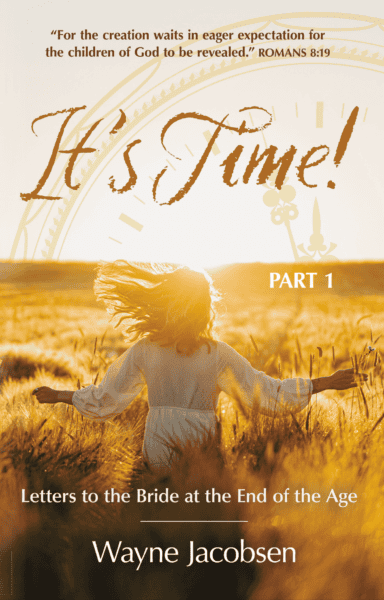 Order Part 1 of It’s Time from Amazon in Kindle or paperback, or read previous chapters online.
Order Part 1 of It’s Time from Amazon in Kindle or paperback, or read previous chapters online.




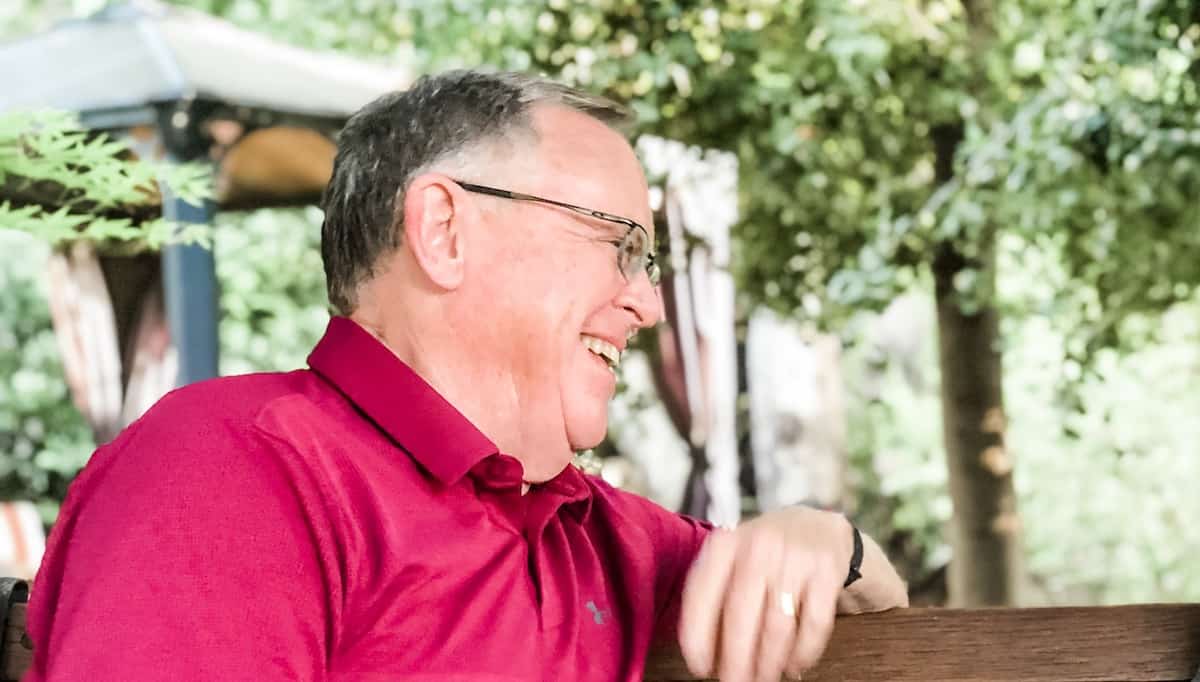
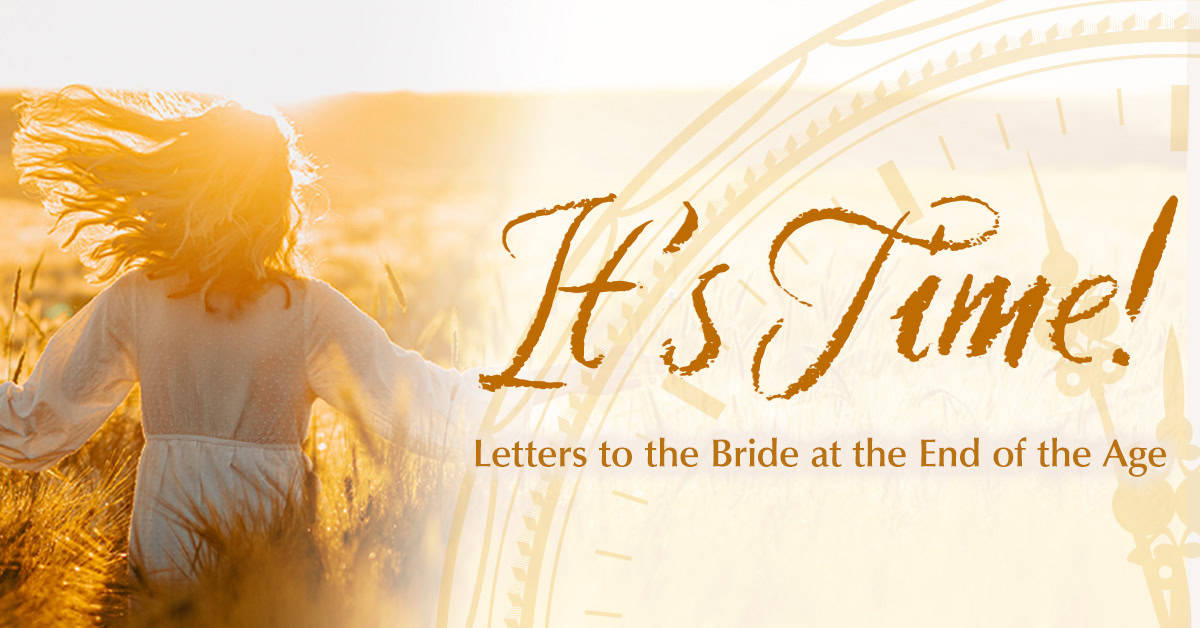
 At his coming, Jesus will expose the dark powers that rule the earth, and the old order of those who compete for influence and power will dissolve into nothing. Kings, presidents, prime ministers, dictators, and CEOs will all lose their power, national identities will be obliterated, and suffering will cease at last. Though I have lost sight of it at times, I’ve never doubted that he will yet come.
At his coming, Jesus will expose the dark powers that rule the earth, and the old order of those who compete for influence and power will dissolve into nothing. Kings, presidents, prime ministers, dictators, and CEOs will all lose their power, national identities will be obliterated, and suffering will cease at last. Though I have lost sight of it at times, I’ve never doubted that he will yet come. And I anticipate with joy the day when all the chaos and conflict will be overturned by Jesus’s final redemption. I also look for that in every circumstance I encounter. Where does love lead me, and how will gentleness and kindness help me discover the better version of me?
And I anticipate with joy the day when all the chaos and conflict will be overturned by Jesus’s final redemption. I also look for that in every circumstance I encounter. Where does love lead me, and how will gentleness and kindness help me discover the better version of me? Order Part 1 of It’s Time from Amazon in Kindle or paperback
Order Part 1 of It’s Time from Amazon in Kindle or paperback
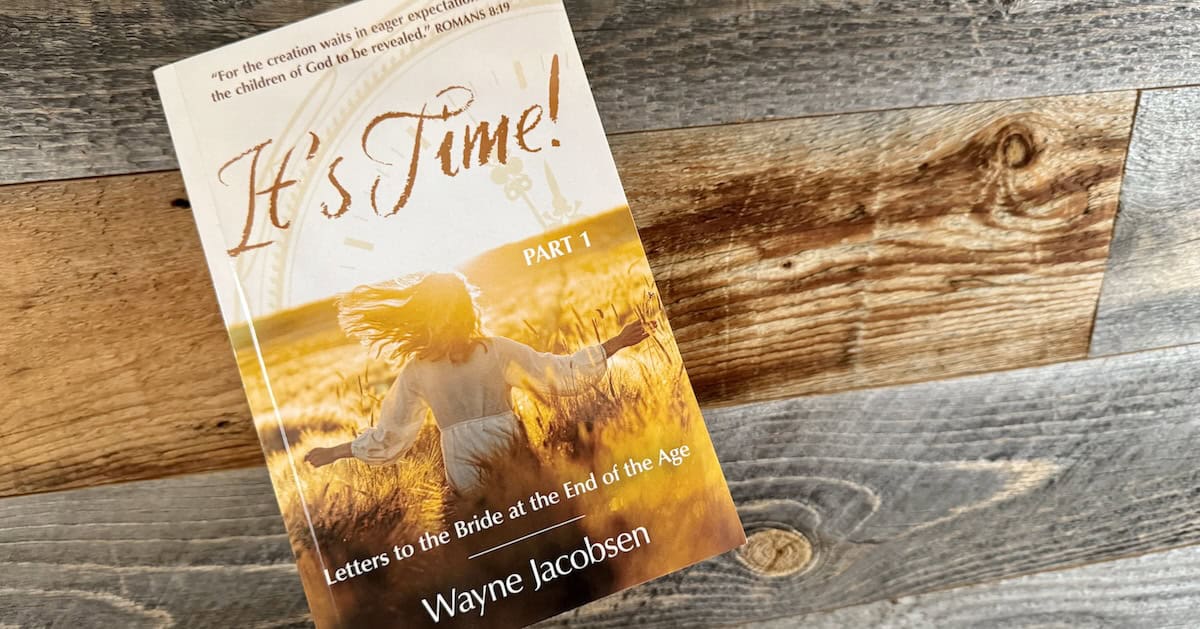
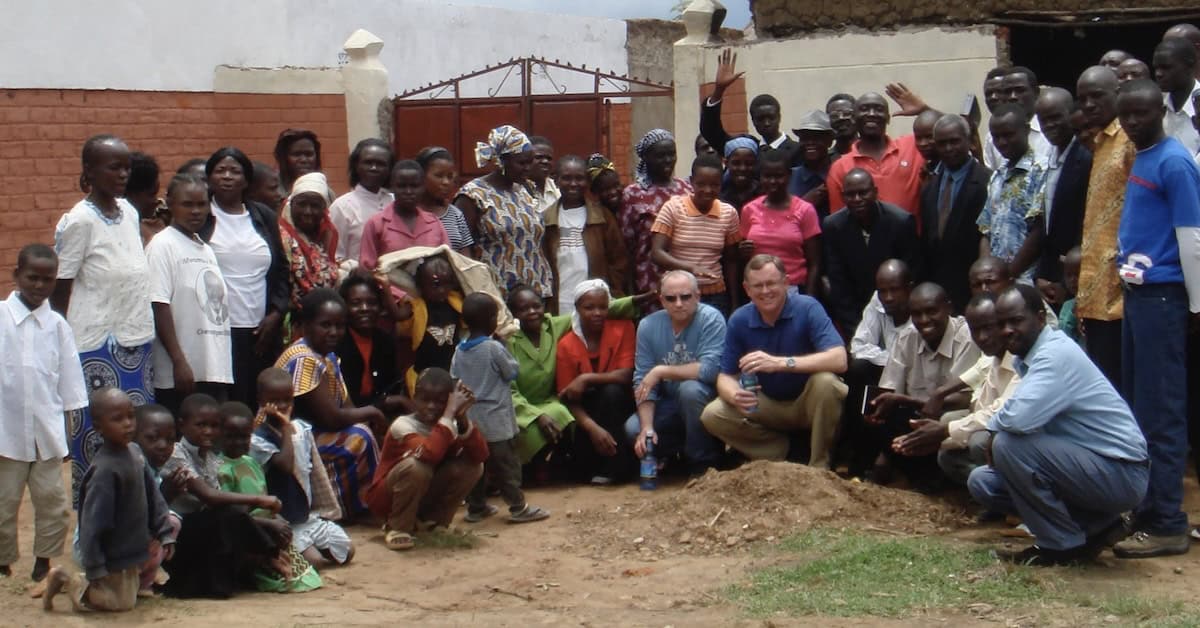
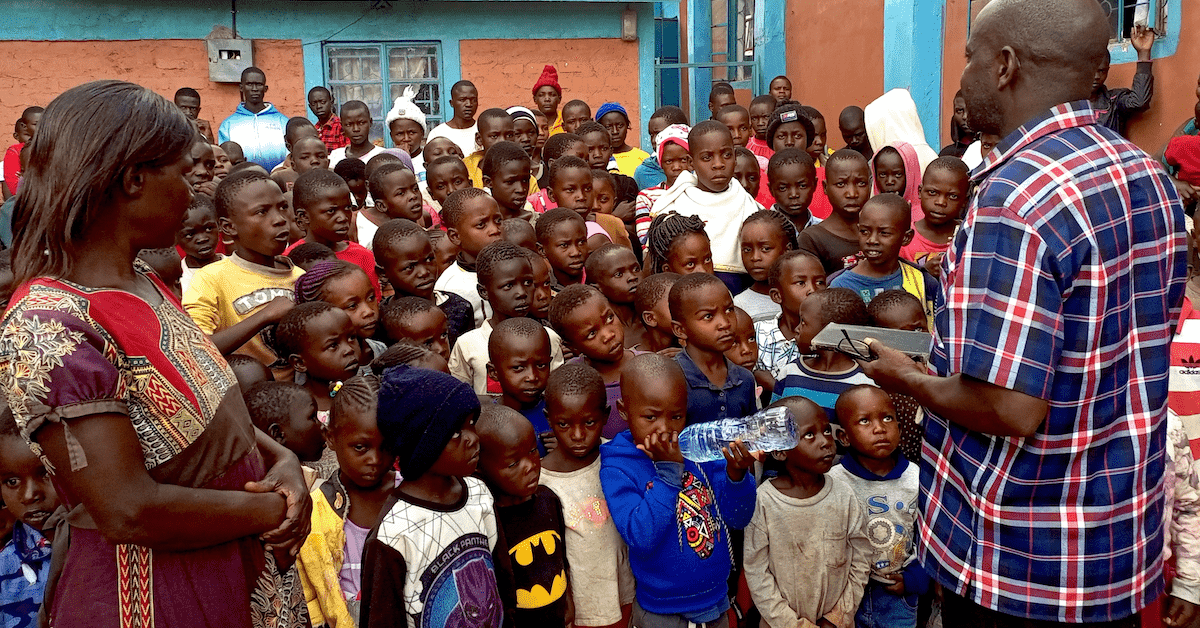

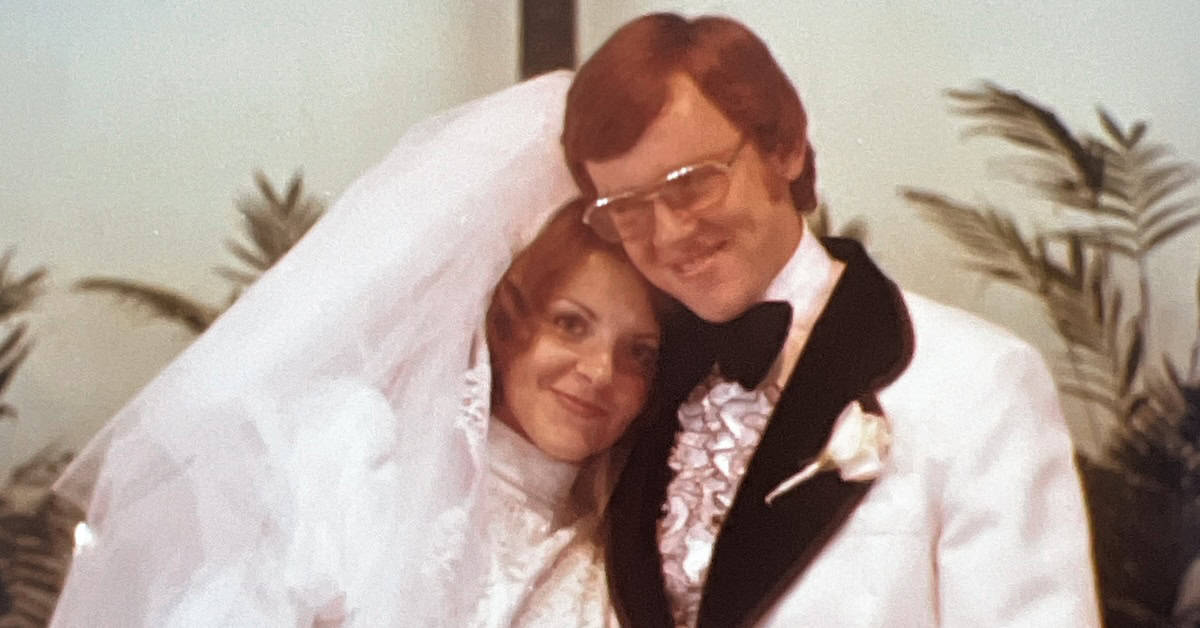

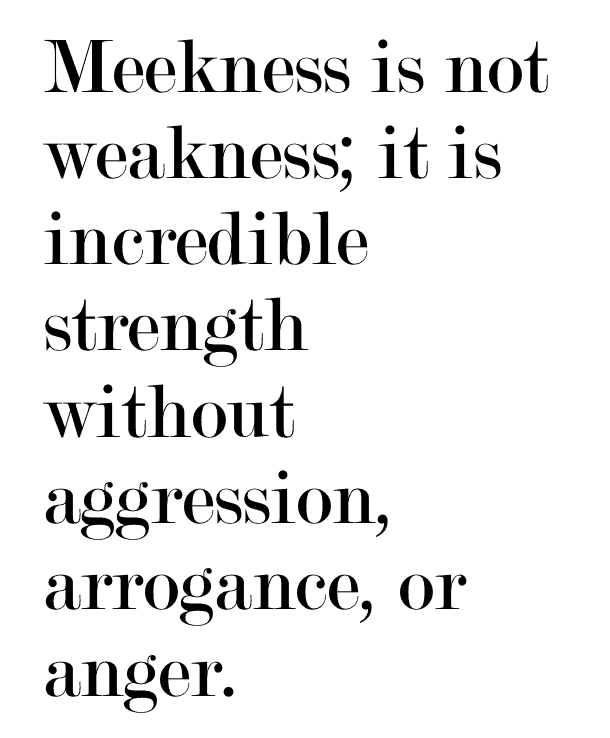
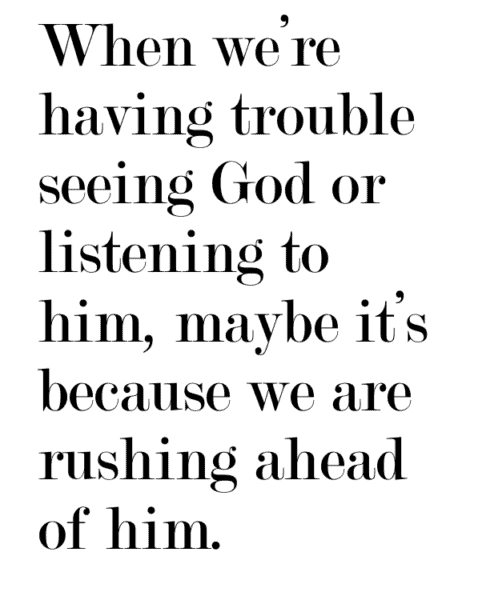 “You need to slow down.” The words crossed my mind instantly. That’s where God began to teach me that my rapid pace wasn’t helpful to Sara’s freedom. Since then, “Life moves at the speed of Sara” has become part of my vocabulary. It applies to everything I do, from driving to preparing dinner to our conversations. I discovered I actually like living at a slower pace, making me more attuned to what’s happening around me or what others are feeling.
“You need to slow down.” The words crossed my mind instantly. That’s where God began to teach me that my rapid pace wasn’t helpful to Sara’s freedom. Since then, “Life moves at the speed of Sara” has become part of my vocabulary. It applies to everything I do, from driving to preparing dinner to our conversations. I discovered I actually like living at a slower pace, making me more attuned to what’s happening around me or what others are feeling.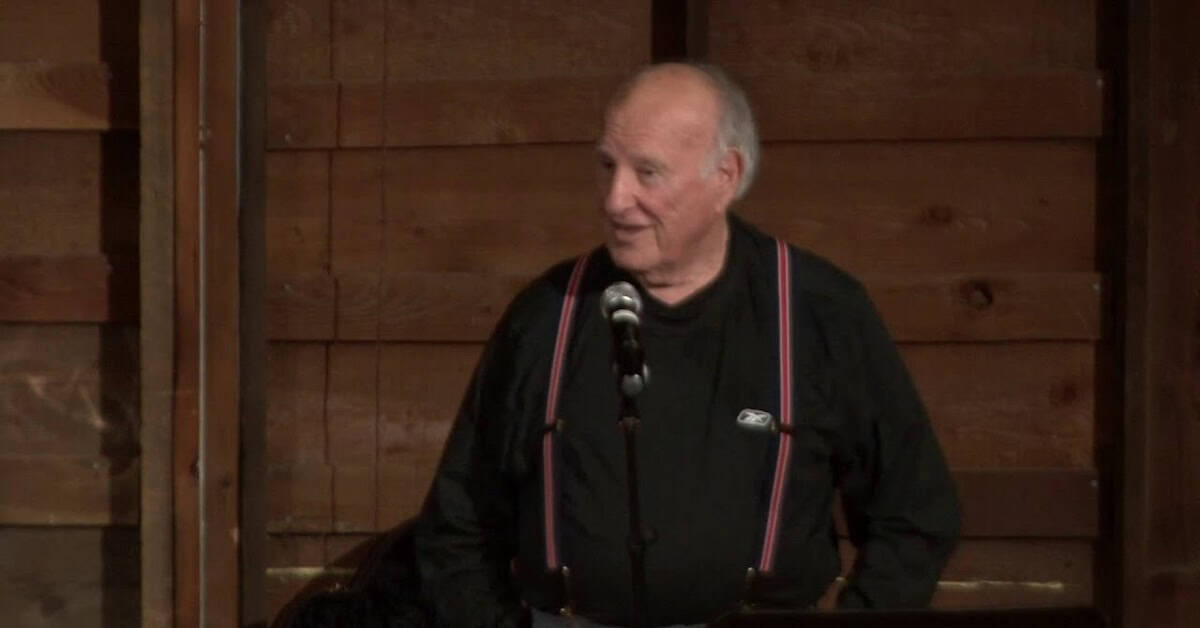
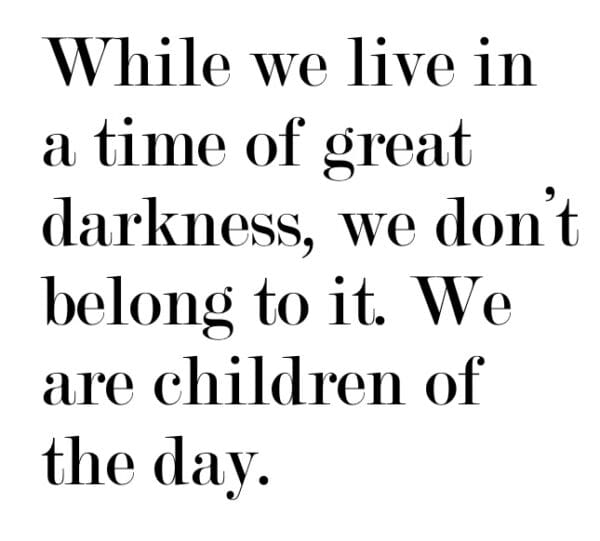
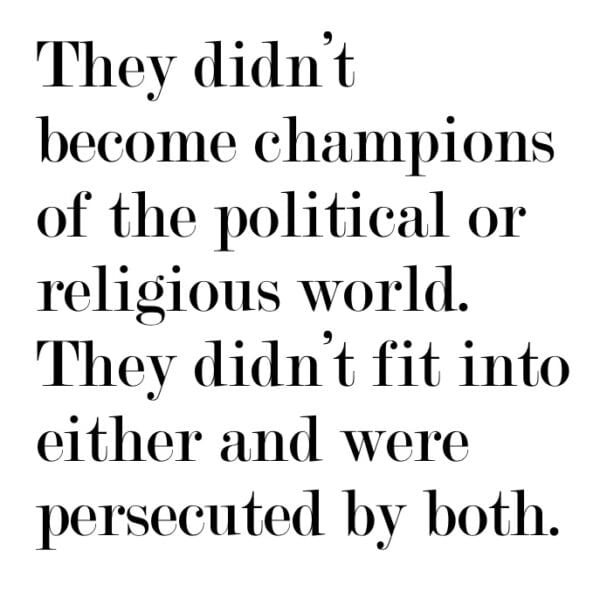 We already see false prophets leading God’s people astray, putting their hope in a political leader who advances their desires. Even though he is the moral opposite of Jesus Christ, those prophets have anointed him as the political savior of Christianity, and by doing so, their love for God and others has grown cold. Those who follow them are playing in the realm of human power and have lost sight of the day.
We already see false prophets leading God’s people astray, putting their hope in a political leader who advances their desires. Even though he is the moral opposite of Jesus Christ, those prophets have anointed him as the political savior of Christianity, and by doing so, their love for God and others has grown cold. Those who follow them are playing in the realm of human power and have lost sight of the day.